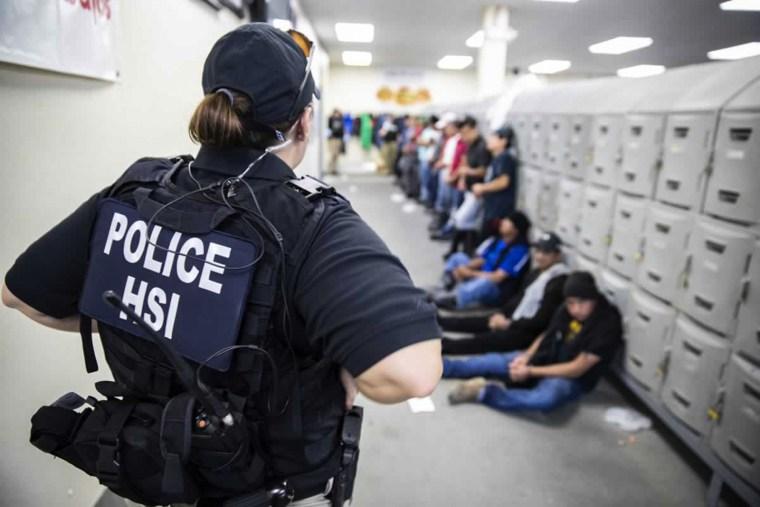Activists Decry Immigration Raids as Politically Staged Performances
Recent immigration enforcement actions under the Trump administration have ignited fierce criticism from immigrant advocacy groups and activists, who argue these raids have evolved beyond routine law enforcement into orchestrated political theater. Rather than focusing solely on public safety or legal compliance, these operations appear timed and publicized to maximize media attention and galvanize political supporters. Critics contend that this approach exploits immigrant communities’ fears, exacerbating social tensions and diverting attention from the urgent need for comprehensive immigration reform.
Main grievances voiced by activists include:
- Strategic scheduling of raids to coincide with peak news cycles
- Disproportionate enforcement targeting vulnerable populations without adequate legal safeguards
- Prioritizing spectacle over substantive policy solutions
- Neglecting the humanitarian fallout in favor of political optics
| Dimension | Activist Viewpoint | Administration’s Defense |
|---|---|---|
| Media Strategy | Excessive use for political showmanship | Ensures transparency and deters illegal immigration |
| Effect on Communities | Generates fear and destabilizes neighborhoods | Enforces laws and maintains order |
| Policy Emphasis | Overlooks long-term reform needs | Focuses on removing unauthorized residents |
The Real-Life Consequences of Politicized Immigration Crackdowns
Behind the political spectacle lies a profound human toll that often goes unacknowledged. Large-scale immigration raids disrupt families, leaving children in foster care or with relatives, and displacing workers who contribute significantly to local economies. Many individuals apprehended have established deep roots in their communities, making the raids not only a legal issue but a social crisis. Activists emphasize that these enforcement actions inflict lasting emotional trauma, legal uncertainty, and economic hardship on affected families.
Advocacy organizations highlight several critical impacts:
- Family Disruptions: Children separated from parents, sometimes for extended periods.
- Economic Hardship: Loss of income for households reliant on detained family members.
- Mental Health Strain: Heightened anxiety and fear within immigrant communities.
- Legal Uncertainty: Prolonged detention and limited access to legal representation.
| Impact Area | Details | Approximate Scale |
|---|---|---|
| Arrests | Individuals detained during nationwide operations | Several thousand |
| Family Separations | Children temporarily or permanently separated from caregivers | Hundreds |
| Community Anxiety | Widespread fear and mistrust among immigrant populations | Extensive |
| Legal Proceedings | Ongoing immigration court cases with lengthy timelines | Continuing |
How Media Shapes Public Views on Immigration Enforcement
The media’s portrayal of immigration raids plays a pivotal role in molding public opinion, often emphasizing sensationalism over nuanced understanding. Coverage of recent enforcement actions has been criticized for turning serious policy matters into dramatic spectacles, sometimes prioritizing viewer engagement over factual depth. This trend risks trivializing the profound human experiences behind the headlines, reducing complex stories to simplistic narratives.
Several media practices contribute to this phenomenon:
- Emotive Visuals: Use of dramatic footage and music to evoke strong emotional reactions.
- Oversimplified Storylines: Framing immigration as a binary conflict between “us” and “them.”
- Charged Terminology: Labels like “criminals” or “invaders” that bias audience perceptions.
| Media Component | Effect on Audience Perception |
|---|---|
| Headlines | Generate urgency and sensationalism |
| Imagery | Can humanize or dehumanize subjects |
| Expert Analysis | May provide balanced insight or reinforce biases |
Ultimately, framing immigration enforcement as spectacle undermines informed public discourse and fuels divisiveness, underscoring the media’s critical responsibility to report with fairness and empathy.
Advocacy for Policy Change and Ethical Media Practices
Human rights advocates and immigrant organizations have called for an end to immigration enforcement tactics that prioritize spectacle over justice. They argue that such raids are counterproductive, inflicting harm on vulnerable populations while failing to address the root causes of immigration challenges. There is a growing demand for lawmakers and federal agencies to overhaul immigration policies, emphasizing humane treatment, due process, and long-term solutions.
Simultaneously, there is a push for media outlets to adopt more ethical standards in immigration reporting. Sensationalist coverage can distort public understanding and exacerbate xenophobia. To promote responsible journalism, experts recommend:
- Providing Context: Situating immigration stories within broader social and economic frameworks.
- Using Respectful Language: Avoiding terms that stigmatize or dehumanize immigrants.
- Elevating Community Voices: Including perspectives from immigrants and advocacy groups alongside official statements.
| Suggested Practice | Intended Outcome |
|---|---|
| Comprehensive Coverage | Encourage multifaceted understanding of immigration issues |
| Ethical Terminology | Reduce prejudice and promote dignity |
| Community Inclusion | Amplify authentic migrant experiences |
Conclusion: Navigating the Intersection of Immigration Enforcement and Public Perception
The ongoing debate surrounding immigration enforcement continues to divide public opinion, with many activists denouncing recent raids as orchestrated spectacles designed more for political theater than effective policy. These developments raise critical questions about the media’s role in shaping narratives and the tangible consequences for immigrant families caught in the crossfire. As the nation watches closely, the future of immigration enforcement may hinge on whether these tactics represent a lasting shift or a transient episode in a deeply contentious political landscape.




